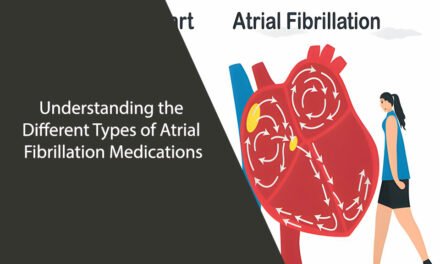Drug abuse, involving both illicit drugs and prescription opioids, poses grave dangers not only to an individual’s immediate health but also dramatically shortens life expectancy. The pervasive impact of long-term drug use extends to nearly every system in the body, leading to serious health problems and chronic diseases. Moreover, the mental health ramifications are profound, with many users developing mental health disorders.
Table of Contents
Physical Health Impacts of Drug Abuse
The long-term effects of drug abuse on the cardiovascular and respiratory systems are profound and life-altering. With each instance of use, individuals increase their risk of chronic disease and early mortality. Health care providers and support networks play crucial roles in addressing these physical changes and issues holistically, helping individuals to recover not only from addiction but also from the physical health damages, like increased blood pressure, gum disease, and decreased nervous system functioning, incurred through prolonged substance use.
This comprehensive approach is vital in improving life expectancy and quality of life for those affected by drug abuse.

Cardiovascular System
The cardiovascular system suffers significantly due to drug abuse, with some drugs posing more risk than others. According to the National Institute on Drug Abuse (NIDA), stimulants like cocaine and methamphetamine are particularly harmful.
- Cocaine constricts blood vessels, which increases heart rate and blood pressure, thereby forcing the heart to work harder to pump blood. This heightened state can lead to myocardial infarction (heart attack), as well as chest pain and high blood pressure, and precipitate other heart-related diseases such as heart failure and chronic cardiovascular disease.
- Methamphetamine, a potent stimulant, causes similar effects and can also lead to heart enlargement due to chronic stress, which eventually impairs its ability to pump blood effectively.
- Marijuana, though often considered less harmful, also affects the cardiovascular system, particularly in individuals with pre-existing conditions. THC, the active component in marijuana, can cause palpitations and elevated heart rate, which might be risky for those with heart conditions like arrhythmias or ischemic heart disease.
Respiratory System
Drug abuse also severely impacts respiratory health, particularly through the smoking of substances like marijuana, crack cocaine, and methamphetamine. These drugs can cause direct lung damage, leading to conditions such as lung cancer and chronic bronchitis. Moreover, smoking drugs can exacerbate existing respiratory ailments such as asthma, making management and treatment more challenging.
Injectable drugs bring their own set of health risks, primarily from the use of non-sterile injecting practices and equipment. This mode of drug use significantly increases the risk of contracting and transmitting infectious diseases such as HIV/AIDS and hepatitis C. Both of these conditions severely compromise the immune system, making the body more susceptible to a range of secondary infections and diseases, often reducing life expectancy dramatically.
Furthermore, the harm extends beyond infectious diseases. Injecting drugs can also cause collapsed veins, abscesses, and increased risk of blood-borne infections, contributing to long-term health complications. The practice of sharing needles, which is common in some drug-using communities, exacerbates these risks and can lead to outbreaks of infectious diseases within these populations.
Broader Implications and Long Term Effects of Drug Addiction on Physical Health
The physical health impacts of drug abuse are not isolated issues but contribute to a cyclical decline in overall health. For example, cardiovascular disease can reduce a person’s ability to engage in physical activity, leading to other health issues like obesity, diabetes, increased body temperature, and increased susceptibility to further nervous system and heart problems. Respiratory diseases impair oxygen intake, which affects all body organs and can diminish mental functioning and the immune response.
Moreover, the psychological burden of dealing with chronic diseases can further encourage the continuance of drug use as a coping mechanism, thereby worsening the serious health problems. This cycle makes recovery and rehabilitation more challenging, emphasizing the need for integrated treatment approaches that address both the addiction and its myriad health consequences.
Mental Illness and Mental Health Conditions Can Be Exacerbated by Drug Addiction
Drug addiction and alcohol abuse has a profound impact on mental health, often leading to or exacerbating existing mental health conditions. The relationship between drug use and mental health is complex and bidirectional, with substance use disorder both affecting and being affected by mental health issues.

Worsening of Pre-Existing Mental Health Conditions
For individuals with pre-existing mental health conditions, drug abuse can significantly worsen their symptoms. Drugs can alter brain chemistry and exacerbate the symptoms of mental health disorders such as depression, anxiety, and bipolar disorder. For example, while someone might initially use a drug like alcohol to self-medicate symptoms of depression or anxiety, the long-term effects of alcohol can deepen the depression and make anxiety more difficult to manage.
Additionally, the use of stimulants such as cocaine or methamphetamine can trigger manic episodes in individuals with bipolar disorder or lead to severe psychotic episodes for those with schizophrenia. The interference of drugs with medications prescribed for mental health disorders can also undermine treatment efforts, leading to less effective management of the condition.
Development of New Mental Health Disorders
Drug addiction can also lead to the development of new mental health disorders. Chronic drug use can alter brain function and make brain cells die, leading to changes in mood, behavior, and cognition. Prolonged exposure to drugs alters the brain’s reward system and stress response, which can manifest as mental health disorders such as anxiety disorders, depression, or paranoia.
For instance, individuals who frequently use synthetic drugs like MDMA (ecstasy) or hallucinogens might experience long-term changes in their emotional regulation and perception, leading to significant anxiety or hallucinogen persisting perception disorder (HPPD), a condition characterized by recurrent visual disturbances.
Cognitive Impairment and Decision Making
Drug addiction often results in impaired cognitive function, which affects memory, attention, and decision-making capabilities. This cognitive decline can stem directly from neurotoxic effects on brain cells, particularly in areas responsible for processing and memory. For example, methamphetamine misuse is known for its severe impact on dental and neurological health, often manifesting as “meth mouth” and cognitive decline respectively, including memory loss and reduced cognitive flexibility.
The impaired decision-making capabilities in drug users can lead to poor lifestyle choices such as engaging in risky behaviors, neglecting health, and ignoring the needs of family or employment. This can create a vicious cycle where poor decisions lead to worsening mental health, which in turn can lead to increased drug use as a form of coping.
Nutritional Deficits and Recurrent Infections
Many individuals struggling with substance use disorders may neglect their nutrition and self-care, leading to significant physical health problems that can also impact mental health. Malnutrition can affect brain function, exacerbating symptoms of mental illness or leading to new mental health issues. Additionally, the immunosuppressive effect of many drugs, combined with a lifestyle that may include shared needles or unprotected sex, increases the risk of recurrent infections, which can further complicate mental health, causing additional stress and anxiety.
Understanding the complex interactions between drug addiction and mental health conditions is crucial for effective treatment and support. This requires a comprehensive approach that addresses both the drug use and the mental health issues concurrently. Health care providers and support groups play a vital role in this process, helping to integrate treatment models that can effectively address the intertwined nature of mental health and substance misuse.
Lifestyle and Behavioral Risks
Drug addiction often precipitates a range of high-risk behaviors and detrimental lifestyle choices that can significantly impact both the user and those around them. This section dives deeper into these risks, highlighting the broader implications for both individual health and public safety.

High-Risk Behaviors and Public Health Concerns
One of the most immediate and visible consequences of drug addiction is the engagement in high-risk behaviors. Unprotected sex, frequently associated with drug use, particularly in states of impaired judgment, substantially increases the risk of transmitting or acquiring sexually transmitted infections (STIs), including HIV. This risk is compounded by the potential for needle sharing among those who inject drugs, which also facilitates the spread of infectious diseases.
Driving under the influence of drugs is another perilous behavior that not only endangers the life of the drug user but also poses a serious threat to public safety. Drug-impaired driving can significantly reduce a driver’s reaction time, decision-making capabilities, and overall motor coordination, leading to increased accidents and fatalities on the road.
Health Deterioration Linked to Specific Drugs
Different drugs have specific impacts on physical health and your nervous system. For instance, methamphetamine misuse is notorious for causing severe dental problems, often referred to as “meth mouth,” where individuals experience rapid decay, loss of teeth and gum disease. This condition is not merely cosmetic; it can lead to significant infections and affect overall health.
Weight loss is another common consequence of drug use, especially with stimulants like cocaine and methamphetamine, which suppress appetite. This can lead to malnutrition, weakening the immune system and making the body more susceptible to disease and infection.
Chronic pain is often reported by long-term users of various drugs, including those who misuse prescription opioids. Ironically, while these drugs are initially used for pain relief, prolonged use can lead to increased sensitivity to pain, a condition known as hyperalgesia.
Avoidance of Healthcare
Individuals struggling with addiction to illegal drugs may avoid regular contact with healthcare providers for several reasons, including fear of stigma, legal repercussions, or simply due to the chaotic lifestyle that drug addiction can engender. This avoidance behavior is highly detrimental; it often leads to undiagnosed conditions which continue to worsen without appropriate medical intervention.
Without regular medical check-ups, vaccinations, and screening for diseases, drug users are at a higher risk of developing serious health complications that could otherwise be preventable or manageable. Chronic conditions such as hypertension or diabetes may go unchecked in drug users, leading to severe complications and even premature death.
Moreover, the mental health aspect of drug users often remains largely unaddressed in those avoiding regular healthcare. Mental health disorders that co-occur with drug abuse, such as depression, anxiety, and psychosis, need comprehensive treatment plans that consider both the mental health condition and the substance use disorder. Untreated mental health issues not only exacerbate the drug abuse problem but also contribute to the overall decline in health and quality of life.
Effect of Lifestyle and Behavior on Treatment for Controlled Substances
The lifestyle and behavioral risk factors associated with drug use underscore the urgent need for integrated treatment approaches that address both the substance abuse and its myriad psychological and physical health implications. It is critical for health care providers, family members, and community support systems to work together to provide a supportive environment that encourages treatment (like that at a Massachusetts addiction treatment center), reduces stigma, and promotes safer behaviors. Effective intervention can help mitigate these risk factors, leading to improved health outcomes and better life expectancy for those affected by drug addiction.
Long Term Effects of Drugs on Life Expectancy
The cumulative effect of the physical and mental health issues and long term effects associated with abuse of illicit drugs significantly reduces life expectancy. From heart failure and kidney damage to liver disease and infectious diseases, the health complications from sustained substance abuse are numerous and life-threatening.

Physical Health Problems
Drug abuse significantly compromises life expectancy through a variety of mechanisms that impact physical health. Chronic substance use stresses the body’s critical systems, leading to debilitating, often fatal conditions:
- Cardiovascular Issues: Continuous drug use presents an increased risk of developing cardiovascular diseases, including hypertension, heart attacks, and heart failure. Drugs like cocaine and methamphetamine cause significant strain on the heart by causing it to work harder and faster, which can lead to premature heart disease.
- Liver Damage: The liver is essential for detoxifying harmful substances, but it struggles to cope with the onslaught of chemicals from regular drug use. This can lead to conditions such as hepatitis, cirrhosis, and liver failure, particularly common among those who abuse alcohol or inject drugs.
- Kidney Damage: The kidneys also suffer under the burden of processing toxic substances, leading to kidney failure or severe dysfunction. This is especially seen with drugs that cause dehydration and muscle tissue breakdown, which release substances toxic to kidney cells.
- Respiratory Diseases: Smoking drugs like marijuana and crack cocaine can lead to chronic bronchitis, emphysema, and lung cancer. Opioids, notorious for depressing breathing, increase the risk of pneumonia and other respiratory infections, often due to a reduced ability to cough and clear airways.
- Infectious Disease: Injecting drugs can lead to an increased risk of contracting infectious diseases such as HIV and hepatitis C, not only from needle sharing but also from the compromised immune response associated with drug use. These diseases further reduce life expectancy and complicate the management of drug addiction.
Mental Health Problems
The psychological impacts of drug addiction are equally grave and contribute significantly to reduced life expectancy:
- Cognitive Decline: Many drugs, especially those that are neurotoxic like methamphetamine, lead to the destruction of brain cells and widespread brain atrophy. This can result in an increased risk of impaired cognitive function, memory loss, visual and auditory hallucinations, and an inability to perform daily tasks effectively.
- Mental Disorders: Drug use is strongly correlated with the onset of several mental health issues, such as depression, anxiety disorders, bipolar disorder, and schizophrenia. These conditions are often compounded by drug abuse, creating a cycle of worsening mental health and increased substance use.
- Behavioral Risks: The behavioral changes associated with drug addiction, including impaired judgment and risk-taking behaviors, lead to higher incidences of accidents, violence, and suicide. Additionally, the isolation that often comes with drug dependency can exacerbate feelings of depression and helplessness, pushing the individual further away from recovery and support.
Increased Mortality Rates
The combination of serious physical and mental health deterioration leads to a markedly increased risk of premature death among drug users. Accidental overdoses are a particularly acute risk, as individuals may not be aware of the potency of the substances they consume. Heart disease and infectious diseases compound this risk, making fatal outcomes more common.
Long Term Drug Abuse and It’s Life-Threatening Impacts

Drug abuse remains a critical public health issue with far-reaching consequences. The long-term effects of drug misuse extend well beyond the immediate risk to health, affecting virtually all aspects of an individual’s life including their physical and mental health, relationships, and their ability to function effectively in society.
It is vital for family members, health care providers, and support groups to encourage and facilitate effective interventions and help individuals seek treatment to mitigate these devastating effects and improve overall life expectancy.





